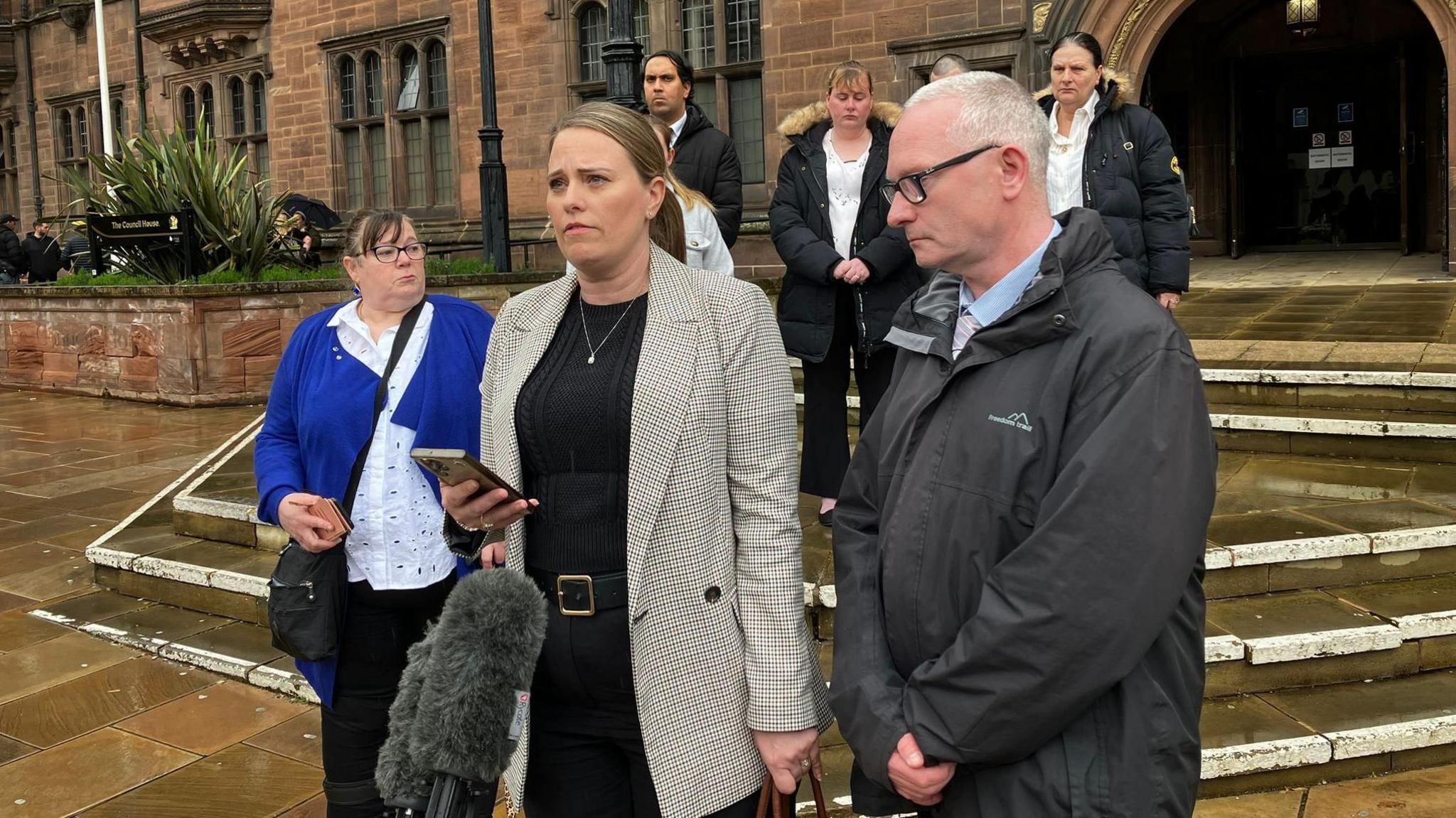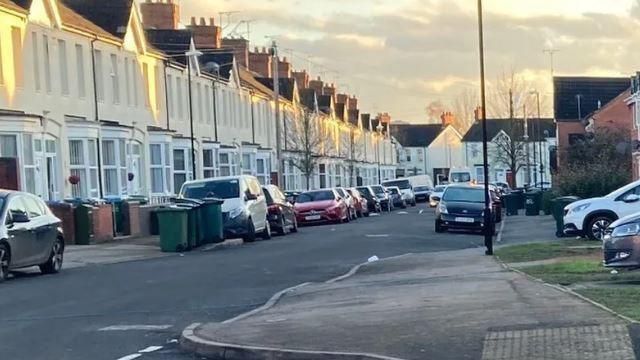Thousands of bin lorries yet to be upgraded after death

Mr Carpenter's family have called for software checks and other bin lorry updates to be mandatory to prevent other deaths
- Published
Thousands of refuse lorries like the one involved in the death of an experienced binman are still operating on UK roads, a manufacturer has revealed.
David Carpenter was crushed to death in the back of the vehicle while working a residential round in Coventry in January 2023.
The inquest jury described it as a "foreseeable" accident and their criticism of the safety of the Dennis Eagle bin lorry, was echoed by the coroner and Mr Carpenter's family.
The manufacturer said it had released an upgrade to customers, but more than 12 months after the incident the coroner heard thousands of vehicles had yet to be updated.
Despite being a safety measure expected to prevent deaths like Mr Carpenter's, the firm also admitted it was charging customers for that update, but it would be at "cost".
The two-week inquest heard Mr Carpenter's coat became entangled in the bin lift and he was dropped into the back of the vehicle before an automatic compaction cycle started.
Although a member of the public alerted another refuse collector, the 60-year-old died.

Mr Carpenter was killed by the vehicle on a residential round in Coventry
In delivering their narrative verdict, jurors told area coroner Delroy Henry evidence showed the vehicle could have been safer.
The inquest was told other staff also got caught on lifting equipment, and that blockages could lead to equipment going up and down automatically.
Mr Henry himself issued a prevention of future deaths report following the inquest's conclusion on Monday.
It came after he summoned Jon Sayer, engineering director at Dennis Eagle, while the jury deliberated on Friday.
Mr Sayer said safety improvements were being rolled out to trucks but confirmed the vast majority were still not of "optimal safety".
The director told the coroner his company had introduced training modifications for those using its products, with brand new OmniDEKA lift systems also including improved safety hardware.
But he confirmed there were between 8,000 and 10,000 vehicles on UK streets similar to the one used by Mr Carpenter.
While not all featured an automatic bin lift system, those that did were receiving software updates, Mr Sayer said.

David Carpenter had been a binman since the age of 18
He added the updates, which have been ordered for about 500 vehicles, would automatically shut down a vehicle's compaction cycle if a person got ensnared again.
"We're trying to encourage all of our customers to take up this option," he explained.
In contrast, Mr Carpenter's family have called for software checks and updates to the bin lorries "to be made mandatory to prevent future loss of life".
Their lawyer added it was "imperative" Dennis Eagle took on board the points made by the coroner.
'Inordinately slow'
In his prevention of future deaths report, Mr Henry said somewhere between four and six million residential bins were lifted every day by bin lorries with similar machinery to that used by Mr Carpenter's team.
The document stated new machines dealt with some of the issues that arose in the inquest but the numbers were dwarfed by the huge number of vehicles currently in use.
"Potentially important changes in the machinery in this hazardous working environment are inordinately slow," it read.
"There remains, 15 months post Mr Carpenter's death, thousands of machines of sub optimal safety on UK roads."
Responding to the verdict on Monday, Dennis Eagle offered its deepest sympathies to Mr Carpenter's family, friends and colleagues.
It added that protecting operators and the general public was a top priority.
The firm said all its products met or exceeded "all relevant standards and regulations" and that it would "continue to update our products as technologies develop".
Follow BBC West Midlands on Facebook, external, X,, external and Instagram, external, Send your story ideas to: newsonline.westmidlands@bbc.co.uk, external
Related topics
- Published22 April 2024

- Published12 April 2024

- Published9 April 2024

- Published22 April 2024
